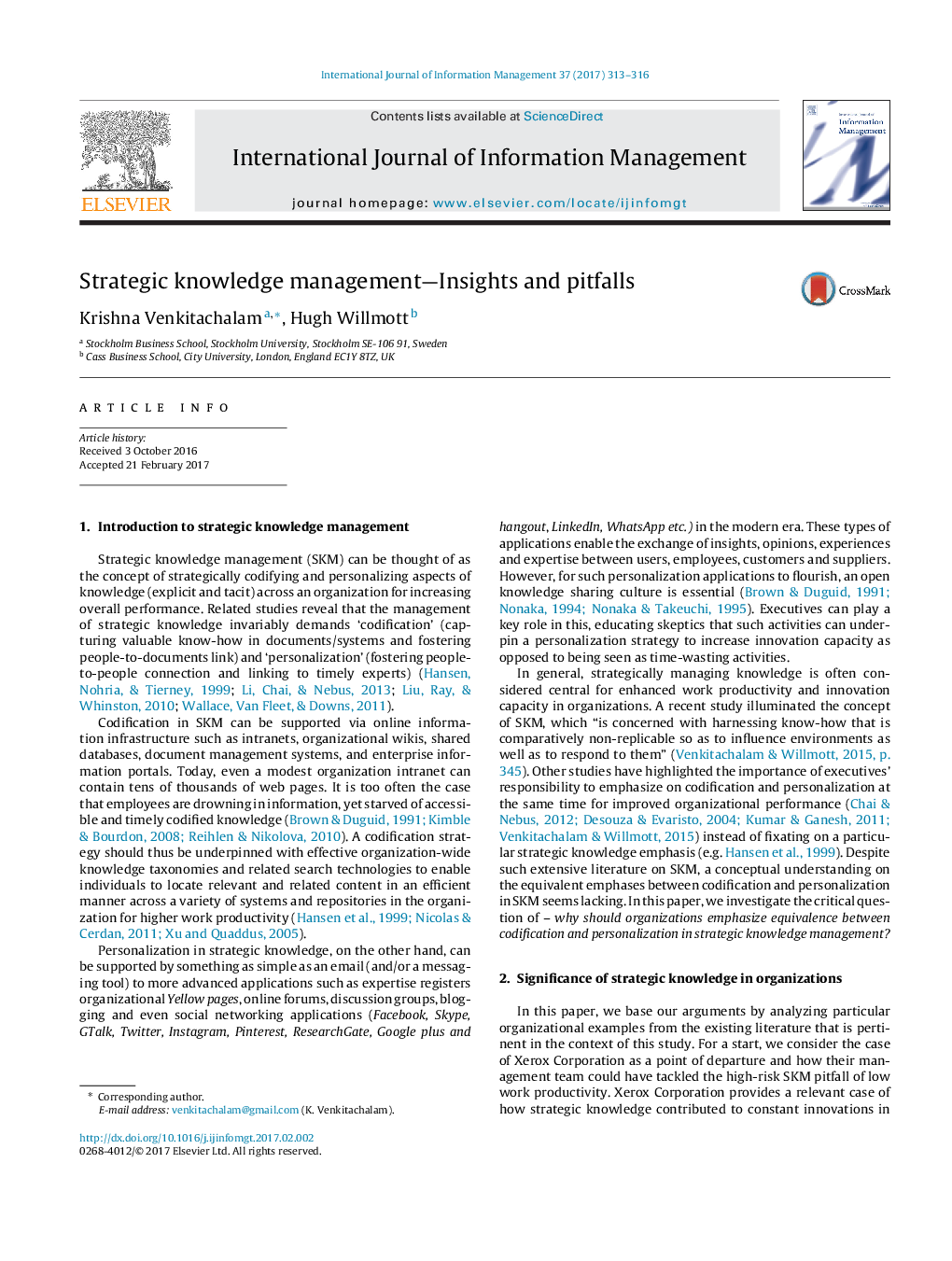| Article ID | Journal | Published Year | Pages | File Type |
|---|---|---|---|---|
| 5110731 | International Journal of Information Management | 2017 | 4 Pages |
Abstract
In an increasingly globalized and hyper connected business environment, using knowledge strategically is often critical for competitive performance. This article is motivated to illuminate the notion of strategic knowledge management (SKM) in organizations. In this regard, executives need to develop an informed understanding of what types of organizational knowledge (and how much) can be 'structured' and/or allowed to 'proliferate' in order to sustain both work productivity and innovation capacity toward a harmonious conceptualization of strategic knowledge in their organizations. This conceptual paper is based on analysing certain exemplars of why organizations need to put greater emphasis on the equivalence between codification and personalization in the context of strategic knowledge management. Our explanations on managing strategic knowledge through different examples provide insights and pitfalls that organizations must be aware of and are as follows. Firstly, we argue that an exclusive emphasis on codification or personalization runs the risk of 'knowledge structuration' or 'knowledge proliferation' respectively in an organization's strategic knowledge management. Secondly, executives should continuously realize the need to emphasize on equivalence (or congruence) between codification and personalization aspects of SKM in order to keep enduring work productivity and innovation capacity in organizations. Thirdly, we argue that SKM initiatives that prodigiously focus on either codification or personalization can lead to pitfalls despite plenty of managerial interventions. We further believe that our proposed ideas will be worthwhile considerations for executives/leaders responsible for strategy, IT and innovation divisions of the organization to determine whether its organization's knowledge engine is running smoothly, and if not, where to direct their energy to yield long term and robust outcomes.
Related Topics
Social Sciences and Humanities
Business, Management and Accounting
Management Information Systems
Authors
Krishna Venkitachalam, Hugh Willmott,
